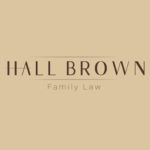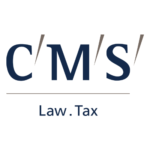Melanie Kalina considers the potential impact of covert recording in the context of children proceedings, and the courts’ approach to such evidence ‘Covert recordings give rise to a multitude of issues that may vary depending on the wide range of situations the recording may take place in.’ It is becoming more commonplace for a client …
Continue reading "Evidence: Going undercover"
This post is only available to members.
Wills & Trusts Law Reports | Summer 2018 #172The judgment in this matter focused on the correct test that the court should apply when deciding whether to strike an entry from an account.
The claimant executors sought:
(1) a declaration that final estate accounts were in order; and
(2) directions to administer the estate accordingly.
The defendants raised objections to the accounts prepared by the executors, and in particular objected to 26 entries relating to legal services. The defendants asserted that, as beneficiaries, they had a right to assess whether such legal charges were re...
Omar Qureshi and Kushal Gandhi consider the use of covert recordings ‘The court has discretion to exclude evidence in order to achieve the overriding objective of ensuring cases are dealt with justly and at proportionate cost.’In the recent case of Singh v Singh [2016] the High Court decided that covert recordings of conversations between business …
Continue reading "Evidence: Careless whispers"
This post is only available to members.
Wills & Trusts Law Reports | April 2015 #148The claimants were trustees of a 1983 children’s trust, and a trust called the Lower Green Farm trust. The 1983 trust had been created by Anthony Samuel Edgar (the testator) in March 1983 for the benefit of his four children. The fund was divided in four equal shares, and each to be held for each child contingently upon attaining 25. The share was to be retained by the trustees on life interest trusts to pay the income to the child for life with a power to advance the capital of that share to him/her.
The Lower Green Farm trust had been made in the testator’s will of ...
Maura McIntosh highlights a recent case limiting witness evidence ‘The power to prohibit the calling of witnesses is relatively extreme and therefore will ordinarily be considered after less intrusive measures have been considered and rejected.’In what appears to be the first High Court decision applying the court’s new express powers to limit factual witness evidence, …
Continue reading "Evidence: Cutting it short"
This post is only available to members.
Wills & Trusts Law Reports | January/February 2014 #136In 2007 the defendant Mr Jimenez (J) became involved in the development of a golf course in France and gathered together a number of investors including the claimant Mr Wise (W), then a close friend of his, who provided £500,000 to invest in the project. The money was procured by means of a loan from Coutts and Co of £350,000 together with funds from two other accounts held by W. It was transferred to the account of a dormant company, the second defendant, CD Investments Ltd (CDI) set up by W and now in liquidation, and hence to an account with HiFX in J’s name in the form of €...
Peter McHugh takes a view on hot-tubbing ‘Giving evidence in court can be a difficult task at the best of times. Some experts are better than others at delivering their evidence. In the hot tub some experts may feel at ease within that situation and some experts may struggle, especially when under pressure.’ The practice …
Continue reading "Evidence: Pass the soap"
This post is only available to members.
Lisa Sullivan and Martyn Mcleish offer practical tips on how to navigate claims where allegations of exaggeration may arise ‘The defence operates as a rule of public policy by which an otherwise perfectly proper claim will not be allowed to proceed or a particular head of loss cannot be recovered because it offends public conscience …
Continue reading "Evidence: Problem issues and problem clients"
This post is only available to members.
Julian Matthews considers the care required when commissioning, reading and relying upon expert reports and interpreting the findings. ‘Taking recommendations, made by an expert, at face value will not suffice. The legal team have a duty to their client to ensure that they have properly understood any caveats that the expert has placed upon their …
Continue reading "Evidence: Expert witness liability"
This post is only available to members.
Mike Wells and Donald McDonald consider recent cases on evidence and privilege ‘Documents that appear pertinent at first sight may, in fact, be irrelevant as a matter of law and so rendered inadmissible. A familiar example of irrelevance as a matter of law is the inadmissibility of evidence as to the parties’ subjective intentions for …
Continue reading "Evidence: All the cards on the table"
This post is only available to members.







